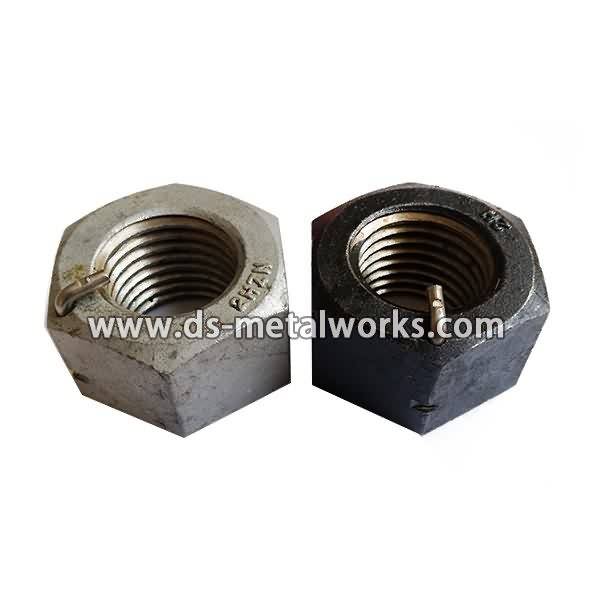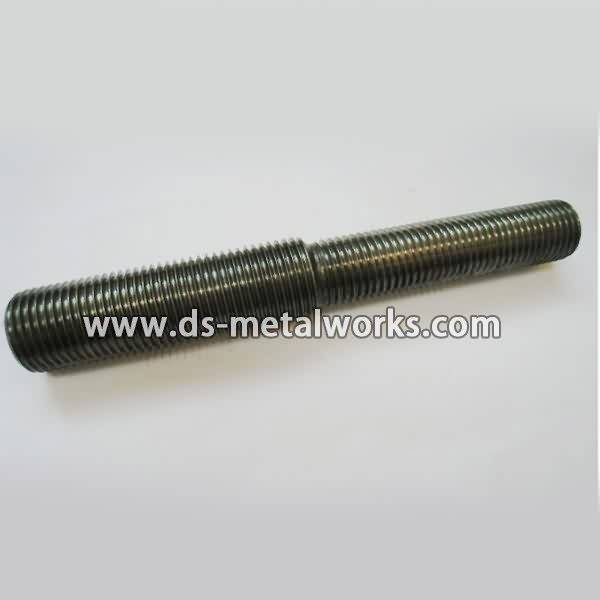OEM/ODM Supplier for DIN261 DIN787 DIN186 ASME B18.5 AWWA C111-A21.11 T Bolts for Portugal Factory

Short Description:
DIN261 DIN787 DIN186 ASME B18.5 AWWA C111/A21.11 T Bolts Also be available acc. to customer’s requirement and drawing Metric Size: M6-M30 with various lengths Inch Size: 1/4”-1” with various lengths Material Grade: ISO 898-1 class 4.8, 5.8, 6.8, 8.8, 10.9, 12.9, ISO 3056-1 A2-70, A4-70 SAE J429 2, 5, 8; ASTM A193/A320 B7, B8, L7; Finish: Black Oxide, Zinc Plated, Hot Dip Galvanized, Dacromet, and so on Packing: Bulk about 25 kgs each carton, 36 cartons each pallet Advantage: High Quality and ...
Product Detail
Product Tags
OEM/ODM Supplier for DIN261 DIN787 DIN186 ASME B18.5 AWWA C111-A21.11 T Bolts for Portugal Factory Detail:
DIN261 DIN787 DIN186 ASME B18.5 AWWA C111/A21.11 T Bolts
Also be available acc. to customer’s requirement and drawing
Metric Size: M6-M30 with various lengths
Inch Size: 1/4”-1” with various lengths
Material Grade: ISO 898-1 class 4.8, 5.8, 6.8, 8.8, 10.9, 12.9, ISO 3056-1 A2-70, A4-70
SAE J429 2, 5, 8; ASTM A193/A320 B7, B8, L7;
Finish: Black Oxide, Zinc Plated, Hot Dip Galvanized, Dacromet, and so on
Packing: Bulk about 25 kgs each carton, 36 cartons each pallet
Advantage: High Quality and Strict Quality Control, Competitive price,Timely delivery; Technical support, Supply Test Reports
Please feel free to contact us for more details.
Product detail pictures:



Our pursuit and company intention is usually to Always fulfill our purchaser requirements. We go on to acquire and layout excellent high quality products for both our previous and new consumers and realize a win-win prospect for our customers too as us for OEM/ODM Supplier for DIN261 DIN787 DIN186 ASME B18.5 AWWA C111-A21.11 T Bolts for Portugal Factory, The product will supply to all over the world, such as: Accra, Pakistan, Japan, Our mission is Provide Goods with Reliable Quality and Reasonable Prices. We welcome customers from every corner of the world to contact us for future business relationships and achieving mutual success!
The Shinkansen Bullet Train (speed 320 km/h) 700, N700 and N700A Series
The Shinkansen (新幹線?, new trunk line) is a network of high-speed railway lines in Japan operated by four Japan Railways Group companies. Starting with the Tōkaidō Shinkansen (515.4 km) in 1964, the network has expanded to currently consist of 2,387.7 km (1,483.6 mi) of lines with maximum speeds of 240–320 km/h (150–200 mph), 283.5 km (176.2 mi) of Mini-shinkansen lines with a maximum speed of 130 km/h (80 mph), and 10.3 km (6.4 mi) of spur lines with Shinkansen services. The network presently links most major cities on the islands of Honshu and Kyushu, with construction of a link to the northern island of Hokkaido underway.
The maximum operating speed is 320 km/h (200 mph) (on a 387.5 km section of the Tōhoku Shinkansen). Test runs have reached 443 km/h (275 mph) for conventional rail in 1996, and up to a world record 581 km/h (361 mph) for maglev trains in 2003.
Shinkansen literally means new trunk line, referring to the high-speed rail line network. The name Superexpress (超特急 chō-tokkyū, initially used for Hikari trains, was retired in 1972 but is still used in English-language announcements and signage.
The Tōkaidō Shinkansen is the world’s busiest high-speed rail line. Carrying 151 million passengers per year (March 2008), it has transported more passengers (over 5 billion, entire network over 10 billion) than any other high-speed line in the world. Between Tokyo and Osaka, the two largest metropolises in Japan, up to thirteen trains per hour with sixteen cars each (1,323-seat capacity) run in each direction with a minimum headway of three minutes between trains. Though largely a long-distance transport system, the Shinkansen also serves commuters who travel to work in metropolitan areas from outlying cities. Japan’s Shinkansen network had the highest annual passenger ridership (a maximum of 353 million in 2007) of any high-speed rail network until 2011, when China’s high-speed rail network surpassed it at 370 million passengers annually.
Information sources: Wikipedia






